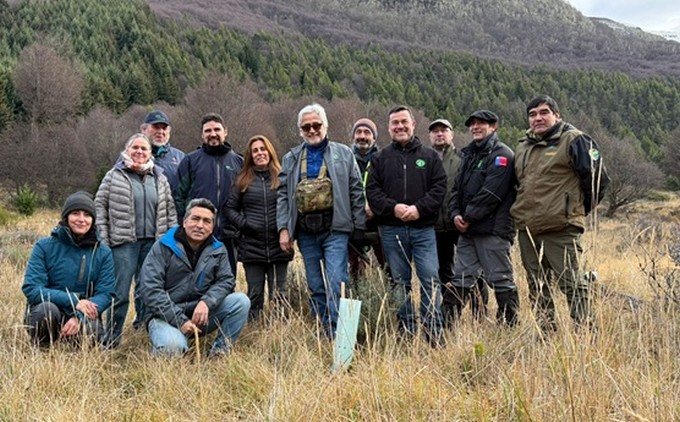As part of its duties as the Scientific Authority for Wild Terrestrial Flora under the Convention on International Trade in Endangered Species of Wild Fauna and Flora (CITES), the Forestry Institute (INFOR), an agency under the Ministry of Agriculture, continues to strengthen its commitment to the conservation of at-risk native species through the development of innovative strategies backed by scientific research.
One such initiative is the monitoring of Araucaria araucana in the Aysén Region, an emblematic species of Chile's native forests, whose natural regeneration has been affected by the progression of climate change. To address this situation, INFOR designed an assisted migration strategy in 2018, aimed at establishing new populations in territories that, according to climate projections, will offer better conditions for their future development.
The project involved collecting seeds from natural populations in the Biobío and La Araucanía regions, propagating them in nurseries under controlled conditions, and later relocating them to the Coyhaique National Reserve, managed by the National Forestry Corporation (CONAF), in the Aysén Region. After more than six years of monitoring, the results have been highly positive, showing good adaptation of the plants in their initial growth stage.
"The progress observed reinforces the path we have undertaken as the CITES Scientific Authority. Through this monitoring, we generate key information to guide public policies and regulatory decisions, such as evaluating potential restrictions on the international trade of protected species if their conservation status warrants it," said Marlene González, a researcher at INFOR and the institution's representative to CITES.
The researcher also emphasized that this experience serves as a concrete example of active conservation based on scientific evidence, in a context of increasingly adverse climate scenarios. "From our technical and scientific role, we will continue strengthening this line of work with updated, verifiable, and relevant information to contribute effective tools for the protection of our native species," she added.
González also highlighted the collaborative work carried out with CONAF Aysén, both in developing technical protocols and in the systematic maintenance of field trials. "This initiative has been possible thanks to inter-institutional coordination, which allows us to combine capabilities and advance more robustly in the conservation of our forest ecosystems," she noted.
INFOR will continue monitoring these plantations and evaluating their response to local conditions, as part of its mandate as a technical agency of the Ministry of Agriculture and its responsibilities as the Scientific Authority for CITES, reaffirming its commitment to the country's sustainability and biodiversity.







Comments (0)
No comments yet. Be the first to comment!
Leave a comment